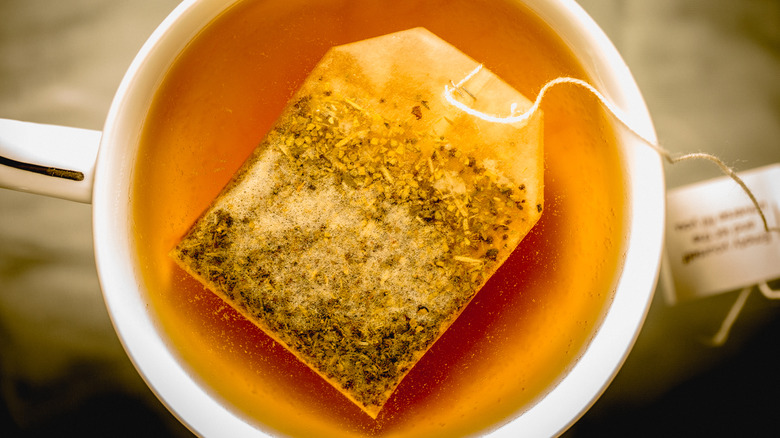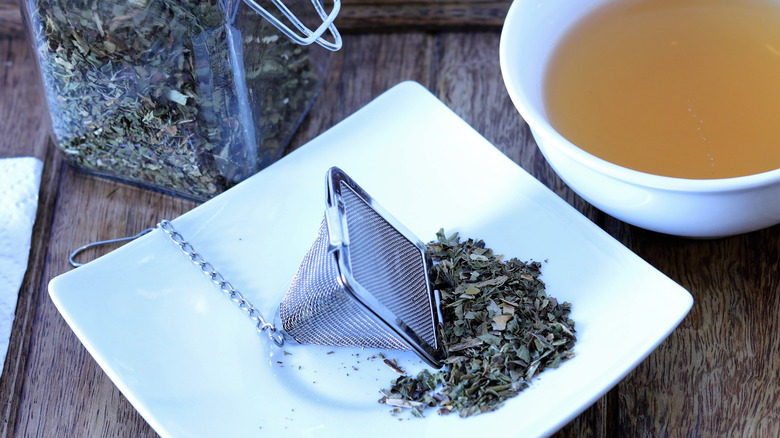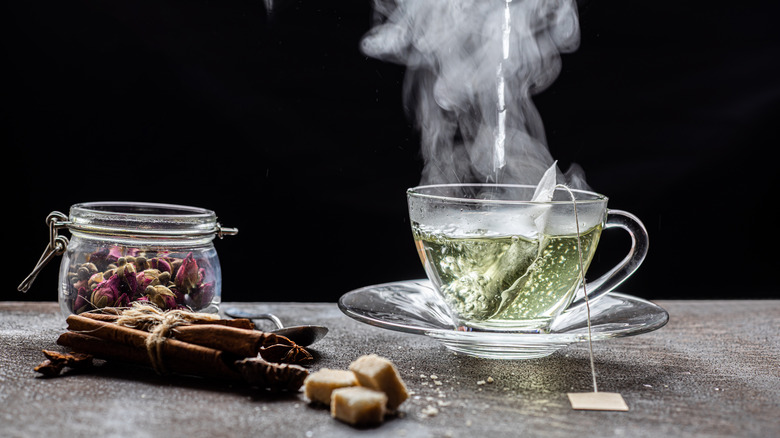Here's How Long You Should Steep Tea For Maximum Health Benefits
Globally, tea only comes in second next to water as the most widely consumed beverage around the world, reports Statista. In 2020, over 6 billion kilograms of tea were consumed by the world's population — a number that's expected to climb to 7.4 billion kilograms come 2025. No doubt that tea can nourish the soul, but science shows us that it can also nourish our bodies too.
Many types of teas are packed with antioxidants known as flavonoids (via WebMD). Able to fight off cell damage caused by free radicals, research suggests that the flavonoids found in certain teas may help protect against cancer, diabetes, and cardiovascular disease. In addition, tea is also purported to reduce cholesterol, boost mental alertness, and act as an antimicrobial.
"There doesn't seem to be a downside to tea," American Dietetic Association spokeswoman Katherine Tallmadge told WebMD. However, when brewing a cup of tea, Healthline reports that the length of time we spend steeping our tea ingredients may impact the number of health benefits we reap.
The longer the steep time, the better
Steve Schwartz, author of "Art of Tea: A Journey of Ritual, Discovery, and Impact," tells Well+Good that the intersection of taste and health benefits lies at the tea's maturation point. "You will certainly extract more benefits the longer you steep a tea. You'll get more flavonoids, polyphenols, and catechins, but you'll also extract more caffeine and tannins, which can lead to a more bitter, unpalatable liquid the longer the leaves remain," Schwartz tells the publication.
In contrast, The Conversation reports that dunking a tea bag in hot water for a mere 30 seconds or less will give us the least amount of health benefits. Rather, we should be aiming for minutes when it comes to steeping our tea — not seconds. Without enough time, our tea will be lacking in flavor and antioxidants, according to Healthline. However, each kind of tea will have its own unique steep-time sweet spot.
How to steep different types of tea
As outlined by Healthline, aim to steep white tea for roughly four to five minutes at a temperature of 175 degrees Fahrenheit. Green tea should be steeped for a period of three to four minutes at the same temperature. Alternatively, black tea is best steeped for about three to four minutes at a temperature of 196 degrees Fahrenheit. Dried herbal teas will want to be brewed at the highest temperature. Such teas include peppermint, chamomile, and hibiscus tea, which can be steeped for up to 15 minutes at 212 degrees Fahrenheit.
But for those who are short on time, The Conversation reports there may be health benefits to be gained from sticking your mug of tea in the microwave. To reap these benefits, first steep your tea ingredients in freshly boiled water for 30 seconds before placing your mug in the microwave for 60 seconds on medium power. Experts say that doing so may actually boost the number of bioactive nutrients in your tea, even more so than three minutes of traditional steeping methods.



